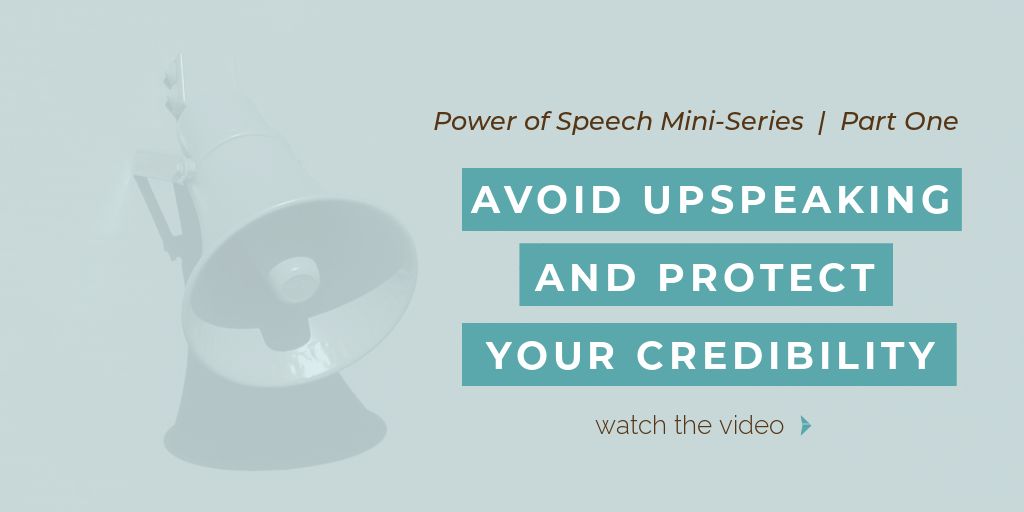
Do you find yourself making a question out of something that isn’t necessarily even a question? Do you end a conversation with a question rather than declaring whatever point you are trying to get across?
Our communication can quickly deteriorate and become shaky we end sentences end with questions or an upward inflection in our voice.
This tendency has been commonly referred to as upspeak or uptalk, and some have gone as far as calling it an epidemic that could potentially hurt your career.
This is part 1 of 3 in our Power of Speech Mini-Series, where we will be chatting about different elements of speech and the power it can have in our life.
Upspeaking can be detrimental because it can:
- reduce credibility
- give the appearance of a lack of confidence
- cause uncertainty or confusion for listeners
- inhibit leadership effectiveness
- limit overall impact
In business and life, we will find ourselves needing to communicate our stance on a matter. Whether we’re negotiating an offer with a prospect, sharing our elevator pitch with an investor or brainstorming a strategy with our team, the way we communicate matters.
Upspeaking has a way of reducing credibility. When we upspeak, it can seem like we’re not sure we stand behind what we are saying. It is as if we are questioning ourselves as the words escape our very own mouths. Uptalk is not a good thing. It can bring a sense of uncertainty or uneasiness to whomever we are speaking with.
Some suggest upspeaking is a way of being polite. What may resemble civility can quickly be mistaken as a plea for consensus. Our lack of assertiveness in these moments can harm our ability to rally for a cause or actively get our point across.
Upspeak can make you appear less confident, uncertain or unintelligent. Women can be especially susceptible to upspeaking.
We’ve all heard the term “valley girl” right?
Once you’re aware of whether you’re questioning yourself with upspeak, you can take the necessary steps to tackle the habit.





